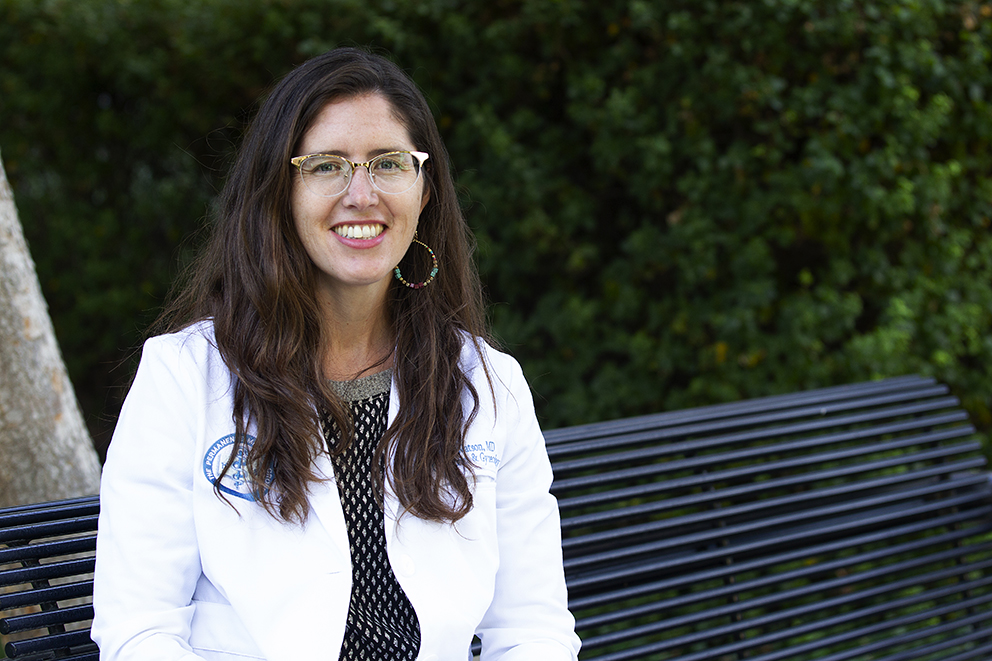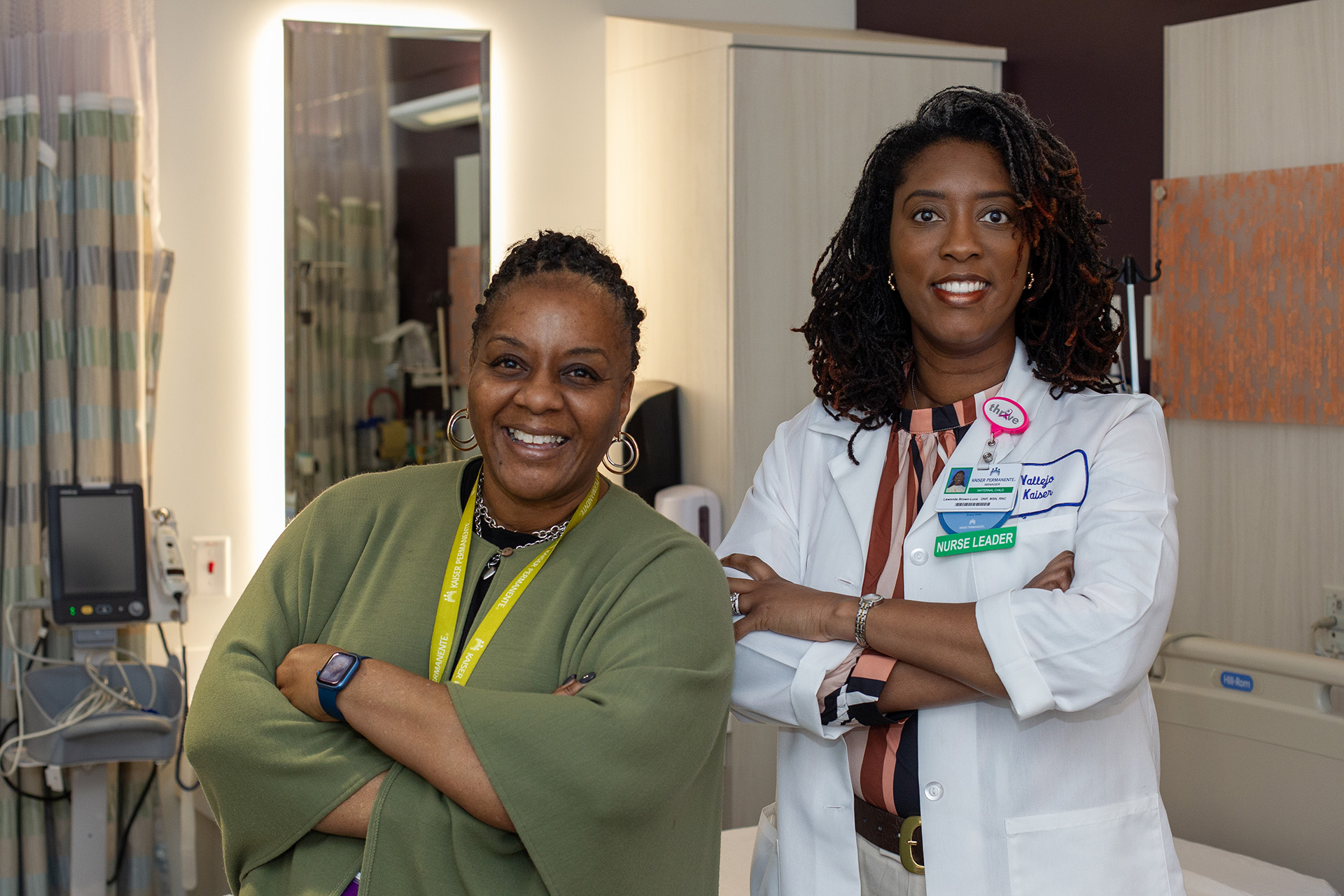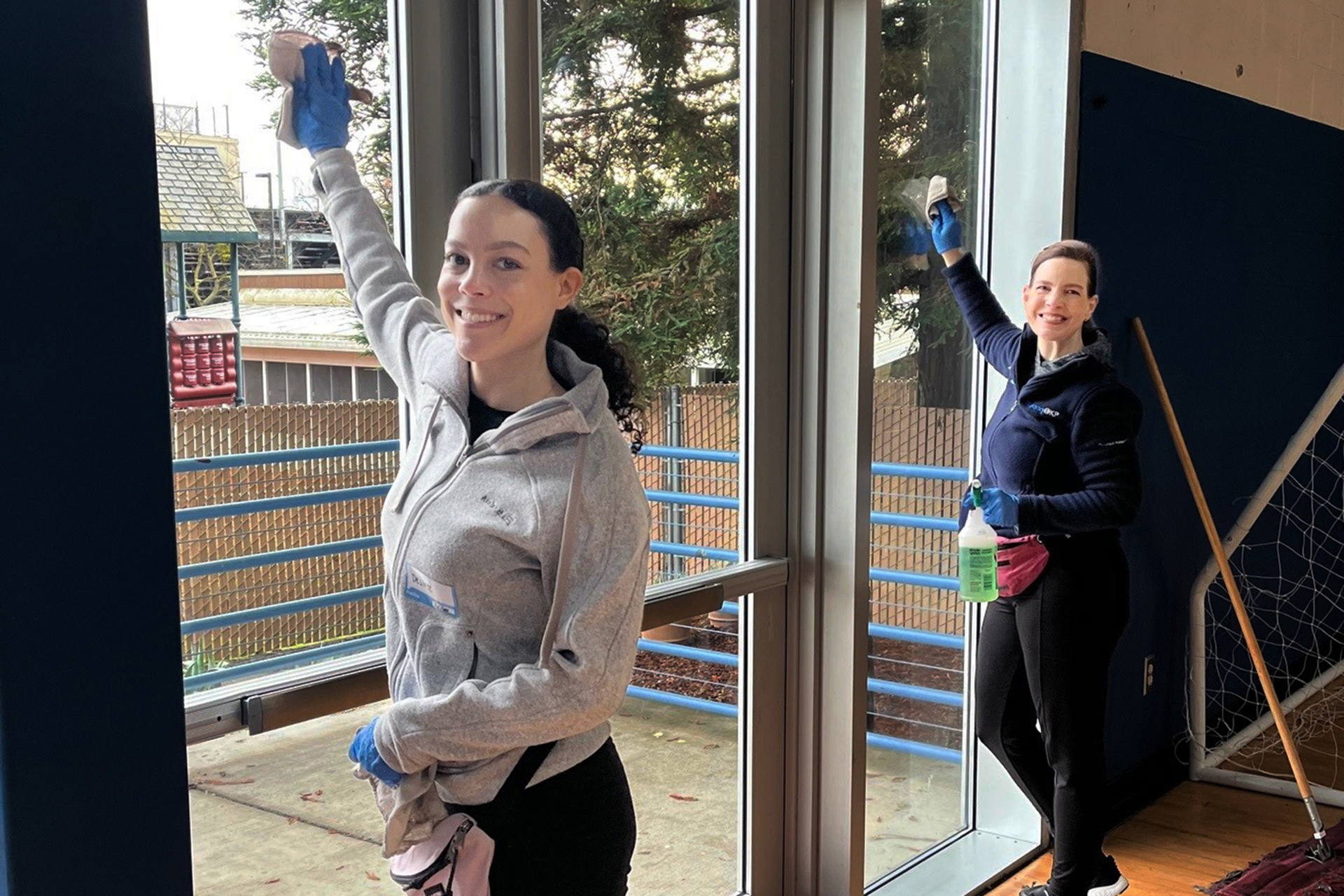October is National Domestic Violence Awareness and Prevention Month. Hear how Carey Watson, MD, (pictured) the new medical director of Kaiser Permanente’s Family Violence Prevention Program, envisions further helping members and patients.
For Carey Watson, MD, new medical director of Kaiser Permanente’s Family Violence Prevention Program, any domestic or intimate partner violence prevention is core to general health. “Anyone experiencing violence at home has a health impact, as a result.”
An ob-gyn at Kaiser Permanente’s Antioch Medical Center for 9 years, Dr. Watson has also been an intimate partner violence (IPV) champion for nearly as long and is a national expert on strangulation injuries. Last spring, she assumed her new regional position when her predecessor Brigid McCaw, MD, retired.
Kaiser Permanente’s Family Violence Prevention Program founded in 1998 is based around creating a supportive environment for patients, including inquiry and referral for help to those who need it inclusive of available resources on-site and within the community. Today, learn about Dr. Watson and her vision for leading this award-winning program into the future.
What is the root of your interest in IPV?
My father experienced abuse at home growing up. He and my mom were open about this with my brother and me. They were also very intentional in setting up a different kind of family based on mutual respect, love, and healthy boundaries. I grew up knowing that abuse is common and, more importantly, that it doesn’t have to be that way. Families and individuals can choose health and happiness.
As a physician, I have always been most excited about the pieces of medicine that have the biggest impact. This is one of them. In the medical setting, we have the unique opportunity to have our patients trust us in in ways that they don’t often trust others. We have room to talk about things such as IPV that are less acceptable to talk about in other settings of our society.
What will be your focus in your new role?
I’m really excited to do the work I have been doing in the Family Violence Prevention Program on a much greater scale. One opportunity for us is to make our IPV screening and follow-up care more consistent department to department across the Northern California Region.
A second area of interest and concern is the need to deepen our understanding that IPV includes anyone experiencing violence at home, including men, LGBTQ people, and our employees and physicians. Anyone.
How are you beginning the work?
We have good building blocks in place to get us to even more identification and intervention, including education, private rooming, effective screening, tools, and coding. Kaiser Permanente is uniquely positioned because we are the only health care organization that tracks diagnosis of IPV to the degree that we do. Others mostly focus exclusively on screening.
Our integrated system allows us to pay attention to each patient identification and confirm we do the right thing by the patient. Furthermore, we can find the gaps in the care pathways and systems and work to correct them.
I have been meeting with our frontline employees and doctors to hear their wisdom. They feel great responsibility to keep that patient in front of them safe from future assault or even homicide. They have excellent ideas to connect patients to resources inside and outside of Kaiser Permanente even more than we already do, as well as how to make us more efficient, particularly in reporting.
How do you balance your medical practice with this role?
I love being able to continue to see patients in my current role. I am in the office about 75% of the time. This makes my work in IPV more grounded in reality. I recognize the challenges of doing the work for our staff and physicians because I am doing it, too.
Closing comment?
I come to this area of medicine filled with hope that our patients and their families can have a better life, and that abuse doesn’t need to be the end of their story. We can be part of making our patients and their relationships healthier for generations to come.





This Post Has 2 Comments
Will this program be available to assist employees with current or h/o DV? At some point will you offer informational meetings to leadership about the physical and psychological effects of domestic violence? I believe it would be very beneficial for staff to have further training in this area of trauma. The effects can be debilitating and educating our team members to further their understanding / empathy would make a larger impact in the life of the victim.
Shanna, thank you for your thoughtful response. Yes, these services are available to all our members as well as all our staff. One way for staff to find help is to reach out to employee assistance, local managers, and other department or site leaders. For staff who are also Kaiser Permanente members, mental health, health education, and visits with your physician or care team are other avenues for help. Maintaining staff training around how to offer help to our whole team is a priority for the Family Violence Prevention Program.
Thank you, Carey
Carey Watson, MD, FACOG
Obstetrics and Gynecology
Antioch Medical Center
Regional Medical Director,
Family Violence Prevention Program (FVPP)